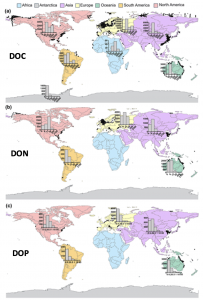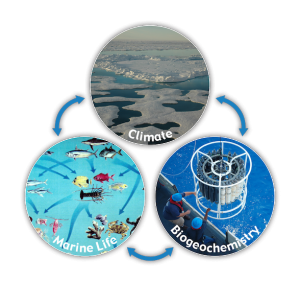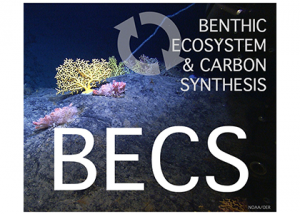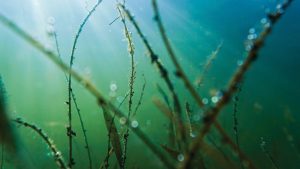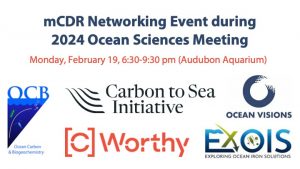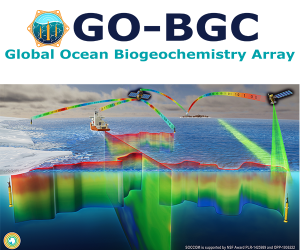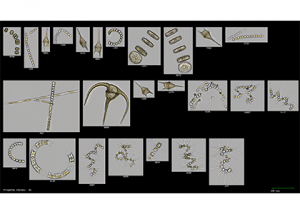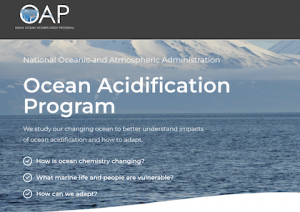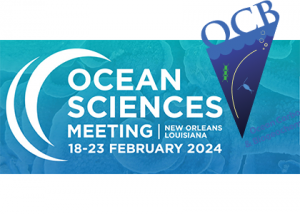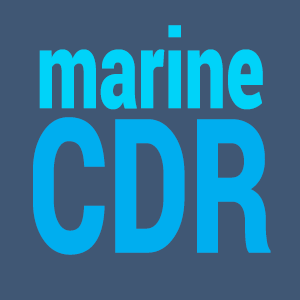OCB2024: June 10-13, 2024 (Woods Hole, MA) Registration will open in early April Submarine groundwater discharge (Chairs: Shaily Rahman, Kanchan Maiti, Yige Zhang) Coupled biogeochemical cycles – interconnected controls on ocean fertility (Chairs: Victoria Steck, P. Dreux Chappell, Zachary Erickson, Jessica Luo, Kristen Krumhardt, Randie Bundy) Air-sea interactions (Chairs: Rachel Stanley, David “Roo” Nicholson, Tim […]
Read MoreThere is currently considerable interest in margin processes within the oceanographic community, particularly in the closely related areas of carbon, nitrogen and iron cycling. To bring multiple investigators together, we are convening a Town Hall at the OSM 2024 Meeting in New Orleans on Monday from 12:45 to 1:45 (220-222, Second Floor). Much of the […]
Read MoreThe National Science Foundation, on behalf of the National Science and Technology Council Subcommittee on Ocean Science and Technology (SOST), requests input from all interested parties to inform the development of a National Ocean Biodiversity Strategy (Strategy), covering the genetic lineages, species, habitats, and ecosystems of United States (U.S.) ocean, coastal, and Great Lakes waters. […]
Read MoreThe Ocean Atmosphere OCB Subcommittee focuses on ocean atmosphere interactions and their role in marine biogeochemical cycles. For our mission statement, previous activities, and recently written US-SOLAS science report, see our website. Our committee meets remotely once a month to lead initiatives, plan activities, interact with international SOLAS, etc. For more details, see our charge […]
Read MoreMarine carbon dioxide removal (mCDR) has exploded in popularity this Ocean Sciences Meeting. Are you curious and want to learn more? Are you thinking about engaging in an mCDR research project? Want to partner with industry or learn what’s happening in the environmental NGO space? Join co-hosts Ocean Carbon & Biogeochemistry (OCB), Carbon to Sea, […]
Read MoreSave the date: Thursday, February 22, 12-2 pm 2024 Ocean Sciences Meeting – Convention Center Room 224 Join Federal Program Managers to share what you think are the grand challenges facing the Biogeochemical Observing and Modeling Communities and discuss opportunities for improved connectivity between observing and modeling efforts. Biogeochemical observing networks and models are developing […]
Read MoreJanuary 31, 2024 at 10 am PST/1 pm EST Register HERE SPEAKERS Ellen Park (Woods Hole Oceanographic Institution) Title: Quantifying biological carbon pump parameters from the global Biogeochemical Argo float array Adam Stoer (Dalhousie University) Title: Estimating marine phytoplankton biomass and productivity from Biogeochemical-Argo floats Abstract: Knowledge on the biomass and productivity of ocean phytoplankton […]
Read MoreOSM Town Hall, Friday February 23rd 2024, 12:45 – 13:45 CST Convention Center, Room: R02-R03, Second Floor Building a Community of Practice for the Collection and Assessment of Operational Phytoplankton Observations Our goal for this Town Hall will be to provide a space and framework for discussion around emerging topics related to best practices when […]
Read MoreThe NOAA Ocean Acidification Program (OAP), in partnership with the Global Ocean Monitoring and Observing (GOMO) Program is soliciting proposals to optimize sampling strategies that improve carbonate chemistry observing systems co-developed with an observing data product end user that can inform real-time data delivery and forecasting of ocean acidification relevant parameters. The optimization design should be geared towards delivering the […]
Read MoreOCB will have a booth at the OSM24 exhibitor hall – come see us there during open hours. SSC members and Project Office staff will be at the booth to talk all things OCB and answer your questions about getting more involved. Stay tuned for OCB-hosted sessions and town halls during OSM.
Read MoreOCB Principles of Engagement on mCDR Given the broad and thriving mCDR landscape, the OCB SSC recently developed a Principles of Engagement document to help guide new research activities, collaborations, and communications around mCDR. Read the document HERE. Must Read on mCDR Regional Node Updates Gulf of Mexico Node Activities GMx regional node 1st zoom […]
Read MoreThe OCB Benthic Ecosystem & Carbon Synthesis (BECS) are hosting a webinar! WHEN November 28, 2023, 10:00-11:00 AM EST SPEAKERS Chris Somes (GEOMAR) – The impact of reductive sedimentary iron release on changing ocean biogeochemistry simulations of the Anthropocene Kanchan Maiti (LSU) – Oxygen and carbon dynamics in Mississippi river influenced shelf sediments REGISTER
Read More- « Previous
- 1
- 2
- 3
- 4
- Next »

